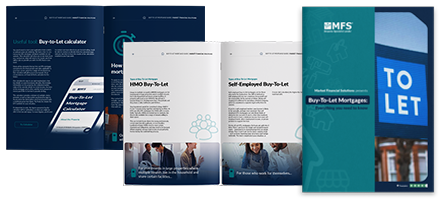Disclaimer
MFS are a bridging loan and buy-to-let mortgage provider, not financial advisors. Therefore, Investors are encouraged to seek professional advice.
The information in this content is correct at time of writing.

The process of selling a home can be a big undertaking for most homeowners. For landlords, however, who are looking to sell a tenanted property, the procedure can be a little more complex. Indeed, the more parties involved in a transaction, the greater the chance of problems arising.
One issue many landlords encounter when selling a tenanted property, is getting a lesser return on their investment. When starting the selling process, many landlords ask: how much does a sitting tenant devalue a property?
We have pulled together the following blog, using external sources to answer this question. We will clarify some of the finer details around the rights that both landlords and tenants have when buying or selling a tenanted property. But first, let’s define what a sitting tenant is.
What is a sitting tenant?
A sitting tenant is an individual(s) living in a property that a landlord is currently renting out. Selling the property, while it’s still occupied with tenants, is known as selling with sitting tenants.
If successful, the sale would see the tenants remain in the property with the new buyer as their landlord. Sometimes, sitting tenants are also referred to as ‘tenants in situ’.
Though they are rare these days, landlords may also come across lifetime sitting tenants. These tenants have the legal right to live in the property until they die. Usually, they live in houses that have been sold by the government or local council to a private landlord.
What rights do sitting tenants have?
When selling or buying a tenanted property, it’s important to be aware of the tenants’ rights. There is legislation specifically designed to protect sitting tenants. Even if there is just a temporary tenancy agreement in place. So, on top of questioning how much does a sitting tenant devalue a property, what else do landlords need to consider?
For starters, landlords can’t evict a sitting tenant unless the tenants break the terms of their existing tenancy agreement. This tenancy agreement comes with the property as part of the sale. There is no legal obligation for a sitting tenant to sign a new rental agreement if being offered one.
As such, whatever agreement or contract the tenant had with the outgoing landlord, must be adhered to by the incoming buyer. This gives sitting tenants the right to stay in the property until their tenancy ends. Unless they breach the terms involved. Some tenants who have had a tenancy agreement in place since before January 1989, will have more comprehensive rights. These tenancies are referred to as assured or regulated. They might even allow the tenant to remain in the property indefinitely.
Once an agreement has been made to sell the property, the outgoing landlord must inform their tenants within 24 hours by written notice. Additionally, the new landlord need to advise the tenant how the change of landlord will affect how they pay rent.
Some landlords might consider offering to sell the property to the sitting tenant before looking for alternative buyers. However, there is no legal obligation for landlords to do so.

What rights do landlords have?
The Queen’s Speech 2022 outlined the government’s plan to ban ‘Section 21’ notices. Though these reforms have not yet been made. Section 21 allows landlords to regain possession of residential property let under an assured shorthold tenancy agreement. They can do so without the need to prove any breach of the tenancy on the part of the tenant.
As such, tenants can be evicted without reason when a fixed-term tenancy agreement ends. Though landlords need to give them 2 months’ notice. These evictions are sometimes referred to as ‘no fault’ evictions.
If the sitting tenant is living under an assured or regulated tenancy agreement, landlords do have the right to change the rental agreement. They can do so with the help of an independent rent officer.
Every two years (or sooner if the property’s rental value has grown significantly), the new landlord can arrange for a rent officer to determine whether they are receiving ‘fair rent’ from the sitting tenant.
If the rent officer agrees that the tenant should be paying more rent, the tenancy agreement can be changed. A property investor should not therefore only focus on how much a sitting tenant devalues a property, but also how could they boost their income.
What to look out for when buying a property with a sitting tenant
There are some benefits to buying a property that is already tenanted. For instance, it can provide the new landlord with immediate rental income. What’s more, they may also inherit respectful, long-standing, and trustworthy tenants.
That said, there are some things that incoming landlords should look out for before buying a property with a sitting tenant. The condition of the property may not be to prefered standards. Additionally, the building may not comply with the necessary safety or building regulations. These are not issues necessarily created by the tenant. However, any renovations or refurbishments needed may be difficult to carry out with sitting tenants.
It is also worth asking the seller for a copy of the existing rental agreement. Additionally, it is good to know whether the sitting tenants are reliable. This would involve checking whether the tenants have a good history of paying their rent, or if there are any points of conflict between the tenants and the outgoing landlord.
Selling a property with a sitting tenant
Selling a property with a sitting tenant can potentially have a higher level of complexity. That’s why it may be more difficult to sell a property with a setting tenant than a vacant property. Landlords must tell their tenants in advance if they are going to sell their property. They also need to give them at least 24 hours notice before every viewing.
Naturally, tenants will be concerned about the risk of being evicted by the new buyer. So, sellers could also make their tenants aware of their rights when they give them notice. They should also clearly outline how their security deposits will be passed onto the buyer, who will need to re-protect it after the sale.
Landlords have three options when it comes to selling their tenanted property(s):
- Through an estate agent
- At auction
- To a home buying company.
If a landlord sells through an estate agent – ideally one that has experience in selling tenanted properties – a fair asking price can be set by the agent. They’ll handle the sale independently. In most cases, it can take between 3-6 months for a sale to go through.
At an auction, landlords are more likely to find buy-to-let investors who are looking to build their portfolios quickly. Indeed, auctions can provide quick sales within 28 days or sometimes even less. But the property could also sell for less than the landlord might have initially hoped.
Similarly, while a home buying company will complete a purchase at speed, they often buy property at a reduced price. However, landlords will often be able to forego some of the other costs associated with a sale such as an estate agent fee.
How much does a sitting tenant devalue a property?
Even when selling a vacant property, there are many variables that can impact the value of a property. But a sitting tenant can devalue a property’s sale price.
If there is a shortage of other buy-to-let landlords in an area, for example, sellers might struggle to find a suitable buyer. While the type of tenancy agreement in place can also have an impact as well.
In general, according to My Urban Jungle, selling a property with sitting tenants under a temporary tenancy agreement can devalue the selling price by between 20-25%. For tenants with an assured tenancy – and therefore greater rights – this figure can grow to as much as 30-40%.
Source: My Urban Jungle
Final thoughts
A sitting tenant can potentially devalue a property. But landlords can potentially take advantage of a reduced purchase price. They would do well to arm themselves with a reliable broker and – should they need extra capital to finance a property purchase – an experienced lender who can provide the flexible financial products that best suit their needs.
With over 15 years of experience, and a growing range of financial products for buy-to-let landlords and investors, MFS is on hand to assist with taking on a tenanted property investment opportunity.
The Complete Guide to
Buy-to-Let Mortgages
Everything you need to know
- Fundamentals
- Different mortgage types
- Useful tools
- Industry stats & more




